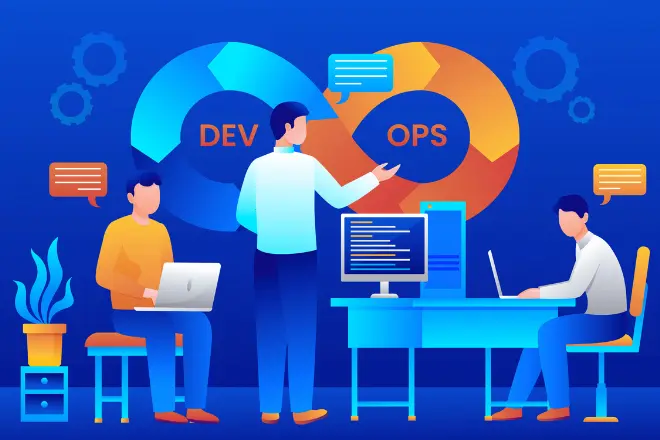How Will Quantum Computing Affect Artificial Intelligence Applications?

Artificial intelligence (AI) has rapidly transformed various industries, from healthcare to finance, creating innovations that were once considered science fiction. However, despite its incredible potential, AI applications have their limitations, especially when it comes to tackling problems that require immense computational power. Enter quantum computing, a technology that promises to enhance and potentially revolutionize AI applications by leveraging the principles of quantum mechanics.
While quantum computing is still in its early stages, its potential to impact AI applications is undeniable. In this article, we’ll explore how quantum computing could affect AI, what advancements we might expect, and what challenges remain.
A Quick Introduction to Quantum Computing
Before we dive into its impact on AI, let’s quickly explain what quantum computing is. Classical computers, which power everything from smartphones to supercomputers, process data using bits that are represented as 0s or 1s. Quantum computers, on the other hand, use quantum “bits” or “qubits”. Qubits can exist in multiple states at once, thanks to a property called “superposition”. This means a quantum computer can process many possible solutions simultaneously, significantly speeding up complex computations.
Another key aspect of quantum computing is “entanglement”, where qubits can be interconnected in such a way that the state of one can instantly influence the state of another, regardless of the distance between them. This allows quantum computers to solve problems that would take classical computers thousands—or even millions—of years.
Current Challenges in AI
To fully appreciate how quantum computing can impact AI, it’s essential to understand the bottlenecks AI currently faces. Some of the biggest challenges are:
Data Processing and Computation Time
Training large AI models, especially those involving deep learning, can take days or even weeks. The complexity of modern AI algorithms means they need to sift through vast datasets to learn patterns, and this requires enormous computational power. Classical computers, no matter how advanced, are often overwhelmed by these demands.
Optimization Problems
Many AI applications, such as route optimization in logistics or portfolio optimization in finance, involve finding the best solution from a vast number of possible options. Classical computers approach these tasks by evaluating one solution at a time, which can be inefficient and time-consuming for large-scale problems.
Scalability
As AI applications become more advanced, the datasets used in training and inference become exponentially larger. Classical computing systems are often unable to keep up with the growing demand for real-time data analysis, especially in complex fields like genomics, drug discovery, or climate modeling.
Quantum Computing’s Impact on AI
Accelerated Machine Learning
One of the most anticipated benefits of quantum computing for AI is faster machine learning. Quantum computers’ ability to process multiple possibilities at once could drastically reduce the time it takes to train AI models. While training a deep learning model on classical computers might take days or weeks, a quantum computer could potentially accomplish this task in hours.
The speed advantage would not only make AI more efficient but also allow data scientists to experiment with more complex models, paving the way for breakthroughs in various industries. For example, advancements in quantum machine learning could lead to quicker drug discoveries by enabling AI models to sift through molecular data faster than ever before.
Solving Complex Optimization Problems
Many AI tasks involve optimization—finding the best solution from a large set of possible outcomes. Quantum computing excels at optimization problems due to its ability to evaluate multiple solutions simultaneously. This could revolutionize industries such as logistics, supply chain management, and finance, where AI is used to optimize routes, resource allocation, or financial portfolios.
With quantum computers, AI could handle optimization problems that are currently too complex for classical systems, resulting in more efficient operations, reduced costs, and better decision-making.
Handling Big Data with Ease
AI thrives on data, but the increasing volume of data—often referred to as “big data”—is becoming difficult for classical systems to manage in real time. Quantum computing’s parallel processing capabilities could enable AI to analyze vast datasets quickly, providing real-time insights that are crucial for fields like cybersecurity, autonomous driving, and medical diagnostics.
Imagine AI systems that can process and analyze the terabytes of data generated by autonomous vehicles in real time, making quicker decisions that improve safety and efficiency. Or think about healthcare, where quantum-enhanced AI could process complex genomic data in minutes, identifying patterns that help in early disease detection.
Improved Pattern Recognition and Prediction
Quantum computing could also enhance AI’s ability to recognize patterns and make predictions, especially in areas where uncertainty plays a significant role. In fields such as weather forecasting, financial modeling, and healthcare, accurate predictions are often hindered by the complexity of the data and the uncertainty involved.
Quantum-enhanced AI could process multiple potential outcomes simultaneously, improving the accuracy of predictions in these fields. For instance, AI models could predict stock market trends more accurately by considering a wider range of variables in real time or anticipate shifts in climate patterns more precisely, enabling more effective disaster management.
Advancing Natural Language Processing
Natural Language Processing (NLP) is an area of AI that involves understanding and generating human language. While AI has made great strides in NLP, challenges remain, especially when it comes to understanding context, sarcasm, or ambiguity in language. Quantum computing could improve NLP models by allowing them to analyze text data in a more nuanced way, making AI systems better at understanding and responding to human language.
In customer service applications, for example, quantum-enhanced NLP could lead to AI chatbots that understand customer queries more accurately and provide more relevant, personalized responses.
Real-World Implications
The combination of quantum computing and AI has the potential to disrupt industries in profound ways:
- Healthcare: AI models could analyze genetic and medical data faster, leading to personalized treatments and faster drug discovery.
- Finance: Quantum-enhanced AI could analyze market trends in real time, offering better investment strategies and improving fraud detection.
- Transportation: Autonomous vehicles could benefit from faster decision-making processes, improving safety and efficiency on the roads.
- Climate Science: Quantum computing could allow AI to create more accurate climate models, aiding in the fight against climate change.
Challenges and the Road Ahead
While the potential benefits of quantum computing in AI are exciting, it’s important to note that the technology is still in its infancy. Building reliable, large-scale quantum computers is a significant challenge, and much of the theoretical work behind quantum-enhanced AI is still being researched. Quantum computers also require extremely controlled environments to operate, limiting their immediate availability for widespread use.
Moreover, developing quantum algorithms that can be efficiently integrated with AI systems is no small feat. The next decade will likely see gradual progress, with quantum computing enhancing specific AI applications before widespread adoption becomes possible.
Conclusion
Quantum computing is poised to revolutionize AI, unlocking capabilities that were previously unimaginable. From accelerating machine learning to solving complex optimization problems, quantum-enhanced AI could transform industries and drive innovation in ways we are only beginning to understand. While the technology is still developing, the future of AI powered by quantum computing holds incredible potential, offering a glimpse into a world where even the most complex problems can be tackled efficiently and effectively.





